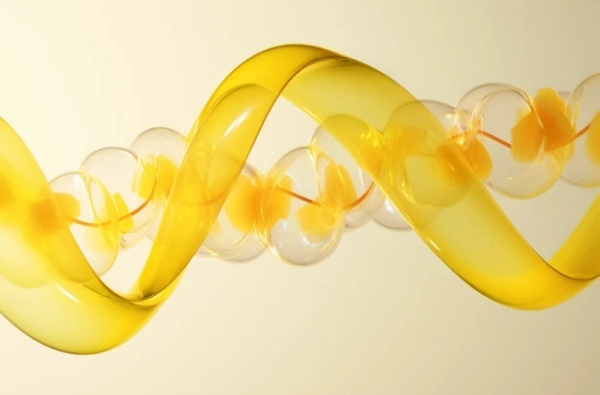- This topic is empty.
-
AuthorPosts
-
2025-08-29 at 12:00 pm #25919
Advancements in cosmetic science have increasingly drawn from molecular biology and gene regulation technologies to offer more targeted, effective skincare solutions. In this blog post, we will share the application of gene regulation ingredient small interfering RNA (siRNA, CAS 63231-63-0) in cosmetics. This hit product of CASOV is not only a cosmetic homolog, but also won the Nobel Price Technology.
Understanding siRNA and Its Mechanism
siRNA is a class of double-stranded RNA molecules, typically 20–30 base pairs in length, that plays a crucial role in the RNA interference (RNAi) pathway. This natural biological process leads to sequence-specific gene silencing by degrading messenger RNA (mRNA) after transcription, preventing the translation of specific proteins. In cosmetic formulations, this mechanism can be harnessed to selectively downregulate the expression of genes involved in skin aging, hyperpigmentation, inflammation, or melanin synthesis.
Brightening Serums, Creams, and Essences: Targeted Skin Tone Regulation
One of the most promising applications of siRNA in cosmetics is in skin brightening treatments, including serums, creams, and essences. Melanin production is regulated by several key genes, such as MITF (Microphthalmia-associated transcription factor) and TYR (Tyrosinase). siRNA molecules can be designed to specifically inhibit the expression of these genes, thereby reducing melanin synthesis and evening out skin tone.
Formulations with siRNA offer a precision approach to managing hyperpigmentation, such as age spots, melasma, and post-inflammatory pigmentation, without the cytotoxic effects commonly associated with traditional ingredients like hydroquinone. Moreover, because siRNA can be tailored to silence specific targets, it minimizes off-target effects and preserves the integrity of surrounding tissues.

Anti-Aging Products: Gene Silencing to Combat Skin Senescence
The aging process is driven by intrinsic genetic programming and external environmental factors, which collectively lead to wrinkle formation, loss of elasticity, and dermal thinning. Key enzymes and proteins involved in skin aging, such as matrix metalloproteinases (MMPs), can be downregulated by specific siRNA sequences.
Incorporating siRNA into anti-aging creams and emulsions allows formulators to target MMPs, particularly MMP-1 and MMP-3, which are responsible for the degradation of collagen and elastin fibers. By inhibiting the production of these enzymes, siRNA can preserve extracellular matrix integrity, reduce wrinkle depth, and enhance skin firmness. Furthermore, it provides a novel modality for preventing oxidative stress-induced damage at the genetic level, a capability not offered by traditional antioxidants alone.
Professional Face Masks and Ampoules: High-Efficiency Delivery Systems
Professional-grade masks and ampoules serve as ideal vehicles for siRNA due to their capacity for high-concentration and localized delivery. The effectiveness of siRNA is highly dependent on its stability and ability to penetrate the skin barrier. To address this, advanced encapsulation technologies such as liposomes, ethosomes, and nanoparticles are employed to protect siRNA from enzymatic degradation and enhance its dermal absorption.
Once delivered to the basal layer of the epidermis or the dermis, siRNA can begin modulating gene expression with rapid onset and sustained efficacy. For instance, in post-procedure treatments, siRNA ampoules can help downregulate genes responsible for inflammation and redness, promoting faster skin recovery and improved texture. For skin-whitening purposes, a sheet mask infused with siRNA targeting tyrosinase may deliver visible brightness within a shorter treatment cycle.
Toners and Lotions: Daily Maintenance with Gene-Level Benefits
Although siRNA is more commonly associated with specialized treatments, its inclusion in daily-use products like toners and lotions is increasingly feasible due to improvements in stability and delivery mechanisms. These formulations focus on low-dose, long-term modulation of gene expression, supporting a preventive skincare regimen.
Daily-use siRNA products are particularly effective for maintenance of pigmentation control, preventing recurrence of discoloration, and suppressing early markers of skin aging. The continuous presence of gene-silencing agents at low concentrations allows for gradual and non-invasive modulation of dermal physiology. This paves the way for an entirely new skincare philosophy—proactive gene regulation rather than reactive treatment.
Safety, Stability, and Regulatory Considerations
The use of gene-regulating agents in cosmetics inevitably raises questions about safety, stability, and compliance. siRNA, due to its biological nature, is non-toxic and biodegradable, and its specificity means minimal interference with non-target genes. However, delivery systems must be carefully engineered to avoid triggering immune responses or degradation before reaching the target cells.
In terms of regulation, siRNA-based cosmetic ingredients often fall under cosmeceutical or quasi-drug categories, depending on the jurisdiction. Formulators and brands must adhere to stringent quality control protocols, including sequence verification, contamination testing, and proof of efficacy in human skin models.
Future Outlook: The Era of Intelligent Skincare
The integration of siRNA into skincare formulations marks the advent of precision dermatology in the cosmetic sector. As personalized skincare continues to gain momentum, siRNA offers a customizable platform where formulations can be tailored to individual genetic profiles and concerns, from hyperpigmentation to accelerated aging.
With the development of smart delivery systems and next-generation bioinformatics, siRNA-based skincare will likely expand into real-time gene monitoring and adaptive treatment, opening doors to truly intelligent, adaptive beauty solutions.
Conclusion
Small Interfering RNA (siRNA) represents an innovation in cosmetic science. Through its ability to silence specific genes associated with pigmentation, aging, and inflammation, siRNA offers unprecedented opportunities for targeted skincare therapies. Whether incorporated into high-performance serums, anti-aging creams, therapeutic masks, or daily toners, siRNA enables formulators to develop products that deliver deep, molecular-level efficacy with minimal adverse effects. As delivery technologies and regulatory frameworks evolve, siRNA is poised to become a cornerstone of next-generation cosmeceuticals.
https://www.casovbio.net/industry/gene-regulation-ingredient-small-interfering-rna-in-cosmetics.html
CASOV -
AuthorPosts
- You must be logged in to reply to this topic.